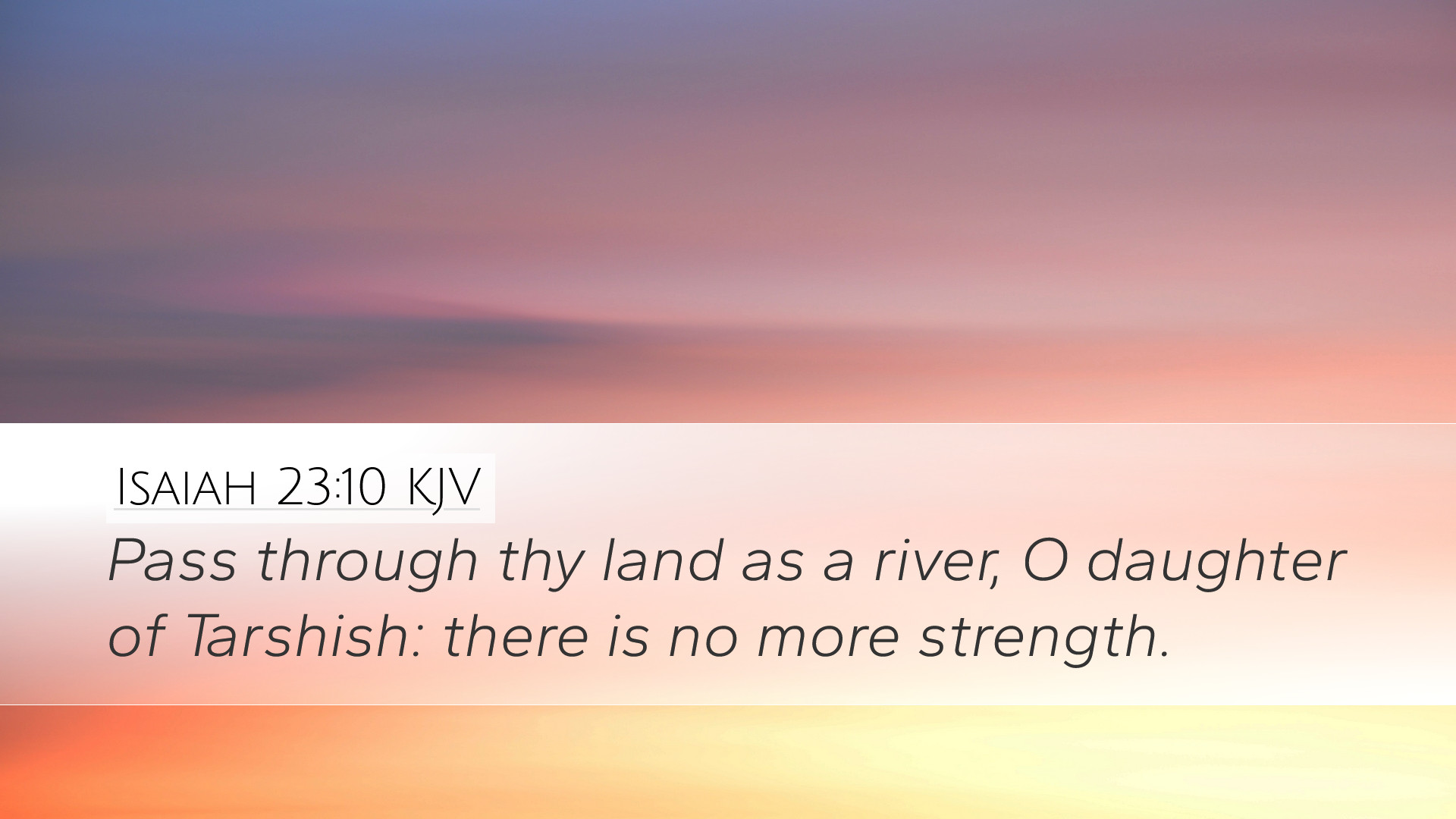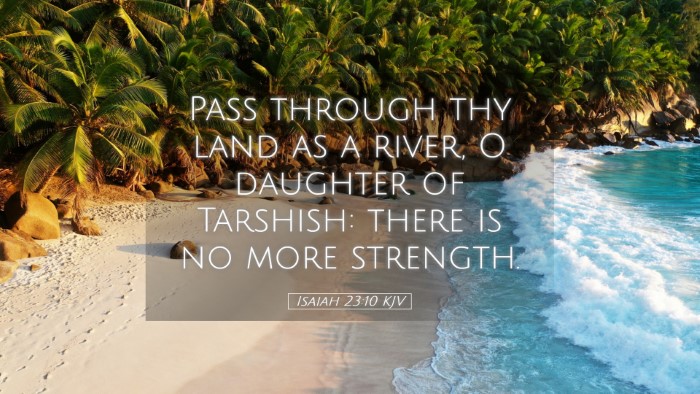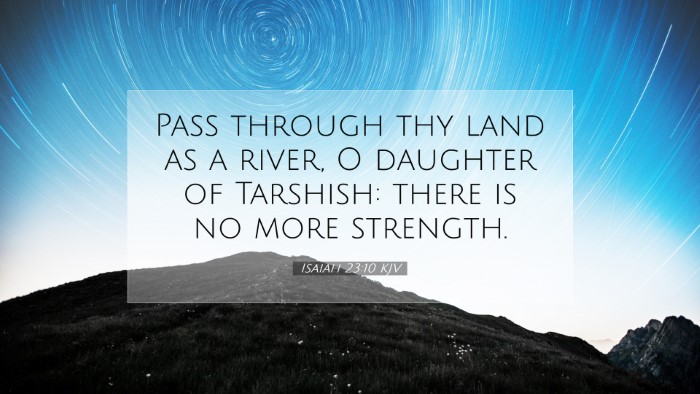Commentary on Isaiah 23:10
Isaiah 23:10 states: "Pass through your land as the Nile, O daughter of Tarshish; there is no restraint anymore." This verse, situated within the broader context of God's judgment on the nations, particularly Tyre and Sidon, carries significant theological implications that resonate with themes of judgment, sovereignty, and hope.
Contextual Overview
The surrounding chapters in Isaiah depict a tumultuous political landscape where the nations are often in conflict and the people of God are called to maintain faith amid chaos. Isaiah’s prophecy encompasses the destruction of Tyre, a prominent trading city, symbolizing judgment against pride and materialism.
Exegesis and Theological Insights
The imagery of passing through the land like the Nile addresses the overflowing of the river, synonymous here with both abundance and perhaps a reminder of the flood of judgment that will swell forth upon Tyre and its allies.
Matthew Henry's Perspective
Matthew Henry reflects on this passage as a historical warning, emphasizing that the mercantile power of Tyre would be consumed by the same waters of judgment they had relied on. This serves to remind contemporary readers of the transitory nature of worldly wealth and power.
Albert Barnes’ Commentary
Albert Barnes elaborates further on the metaphor of the Nile, interpreting it as a representation of unstoppable force. The reference to "no restraint anymore" captures a critical moment in the divine narrative where God’s judgment overwhelms even the mightiest of cities. This serves as a challenge to believers to examine their dependence on human systems versus divine providence.
Adam Clarke's Analysis
Adam Clarke elucidates the original Hebrew terms and emphasizes the destiny of Tarshish as being intertwined with Tyre. The command to "pass through" speaks to a forceful dismantling of power structures, leading to restoration through divine intervention. Clarke's interpretation highlights the overarching theme of God’s sovereignty over all nations, suggesting that no human scheme can ultimately stand against His will.
Theological Implications
- Judgment and Accountability: This verse embodies the principle of accountability to God. Nations and individuals alike are called to recognize that their actions bear consequences.
- Hope Amidst Despair: For the faithful, the impending judgment also implies a promise of restoration and renewal. It reassures believers that God's plans are redemptive, even when they involve deep adversity.
- Divine Sovereignty: The theme of divine sovereignty is paramount; it emphasizes that no earthly power can thwart God’s ultimate purpose.
Application for Pastors and Theologians
In preaching Isaiah 23:10, pastors are encouraged to highlight the relevance of this passage in today’s context, where materialism and pride can often distract the faithful from their reliance on God. The insights from Henry, Barnes, and Clarke invite an exploration of how contemporary believers can navigate a world filled with competing sources of power and security.
Conclusion
In summary, Isaiah 23:10 serves as a stark reminder of God’s sovereignty and the nature of human systems. The combined insights from Matthew Henry, Albert Barnes, and Adam Clarke provide a rich tapestry of understanding that can enrich personal study and corporate worship alike, urging all believers to build their foundations not on the shifting sands of human power but on the everlasting strength of the Lord.


